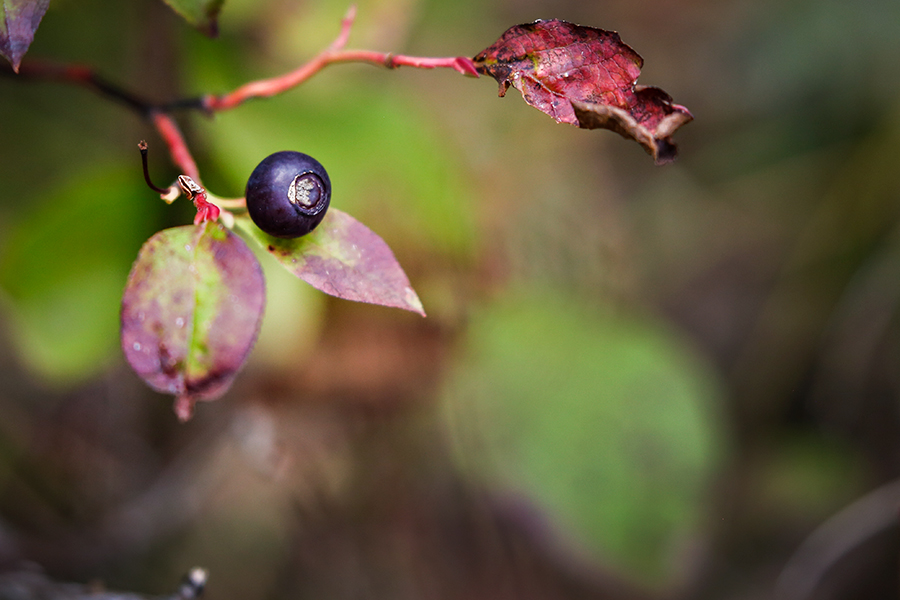No Taming the Wild Huck
Despite decades of research, mountain huckleberries remain undomesticated and Montana’s huck retailers remain dependent on local pickers
By Andy Viano
There are few mysteries modern science has been unable to crack, but the stubborn mountain huckleberry, driver of a niche industry, staple of bear diets and the unofficial state fruit of Montana, remains a puzzle too difficult to solve.
There have been decades’ worth of research in the field, but so far all efforts to grow a version of the huckleberry prevalent in places like Washington, Oregon, Idaho and Northwest Montana have proven futile. Dr. Amit Dhingra, a scientist and professor at Washington State University, told National Public Radio in 2017 that “domesticating the wild huckleberry is impossible.” And even Dr. Danny Barney, who the Los Angeles Times called “the nation’s leading specialist on (the huckleberry)” and who conducted huckleberry research at the University of Idaho for more than 22 years before his lab in Sandpoint was closed in 2010, was unable to grow a consistent crop that could alter the booming huckleberry business.
So the job of harvesting still falls to local pickers who tend to put an emphasis on the wild in wild hucks. Mom-and-pop operations are the norm, with some picking families dating back generations and others traveling to their favorite huckleberry spots in caravans around the Northwest. But the world of huckleberry picking is as hush-hush as they come, with any questions about where the Flathead Valley’s largest retailers get their supply eliciting an “I could tell you but I’d have to kill you” with just a little too much uncomfortable laughter to be dismissed. One local said he brings along a trained martial artist when he picks, just in case things get out of hand, and a 2014 dispute over huckleberries near the North Fork Flathead River ended with one man firing a warning shot from his gun, according to a report from NBC Montana.
While the world of huckleberry picking stays shrouded mostly in shadows, residents and visitors in Northwest Montana are bombarded with advertisements hawking huckleberry-flavored everything for sale, from jams to ice cream to candies to hand creams to beer to a daiquiri mix (available at The Huckleberry Patch in Hungry Horse). Huckleberry sellers are proprietary about their supplies, too, with James “Buddy” Willows of Willows HuckLand in Hungry Horse boasting that his huckleberries — and huckleberry pie — reign supreme because they’re sourced exclusively from Northwest Montana.
Willows has been in the huckleberry business since childhood, starting with his father and now at HuckLand, which he has owned and operated since the late 1990s. He buys huckleberries from just about anyone who has them to sell during the prime picking season (typically mid-August to mid-September) and says he typically makes purchases from between 160 and 200 different sellers every year.
“I have rugged mountain people that go out and get them for me,” he said. “And I have girls that pick a couple gallons a day, and others who are highly organized professionals that will pick sometimes 10 to 15 gallons a day.”
The huckleberry is a commodity, and not unlike other commodities, the price Willows will pay can vary based on supply. Because there is no large-scale huckleberry picking industry and because the work of picking in bulk is physically demanding, the berries typically draw a high price, although this year’s abundant crop has Willows paying just $7.25 per pound. When the hucks are tougher to come by, the price goes up and the competition becomes more cutthroat, and Willows can even be found deep in the woods from time to time, buying huckleberries from pickers on the spot.
For most other Northwest Montanans, of course, huckleberry picking is a little less stressful. In the Flathead National Forest, visitors can pick up to 10 gallons of hucks without a permit, and places like Whitefish Mountain Resort even advertise opportunities to go picking. Huckleberries are also a major food source for grizzly and black bears, however, and pickers are reminded to bring bear spray and make plenty of noise during their excursion.
Just don’t ask a picker where, exactly, they’re going.